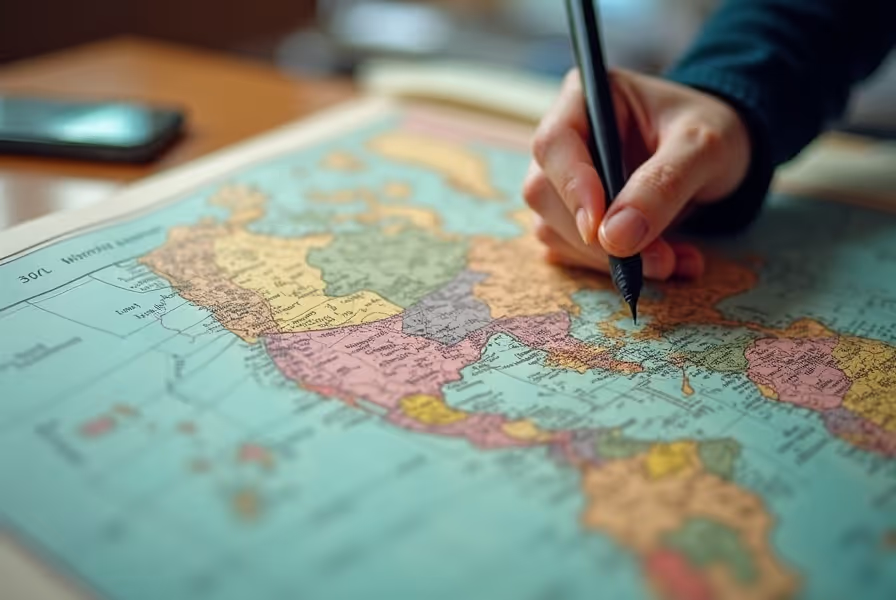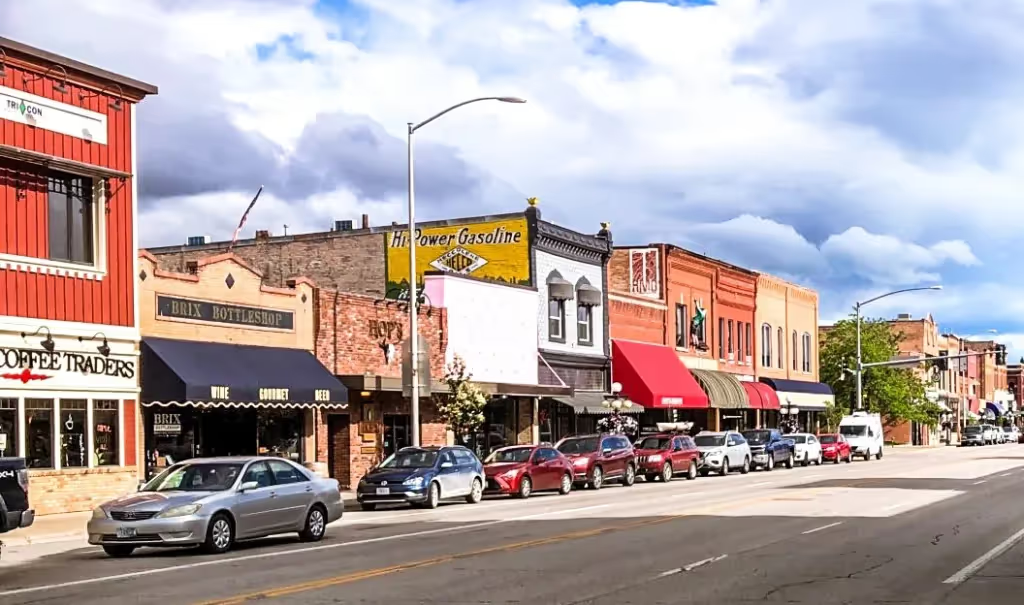Your Pathway to a Bachelor’s Degree in Cartography
Mapping the world has become more important than ever in the digital age. Earning a bachelor’s degree in cartography opens doors to rewarding careers in GIS, environmental studies, and geospatial technology. Whether you're passionate about geography or intrigued by digital map design, this degree provides in-depth skills in map-making, data analysis, and geographic information systems (GIS).
What Is Cartography and Why Does It Matter?
Cartography is the art and science of map-making. It combines geography, data visualization, computer science, and design. Cartographers help governments, businesses, and communities make sense of complex datasets through visually compelling and practical maps.
Key elements of cartography include:
- Geospatial technology and GIS
- Data collection and analysis
- Map design principles
- Remote sensing
- Spatial analysis
What to Expect from Bachelor’s in Cartography Programs
Colleges and universities offer a Bachelor of Science (BS) or Bachelor of Arts (BA) in Cartography, sometimes called Geographic Information Science or Geomatics. These four-year programs blend technical courses, fieldwork, and real-world projects.
Typical curriculum components include:
- Introduction to Cartography
- Geographic Information Systems (GIS)
- Remote Sensing
- Spatial Data Management
- Map Projection and Visualization
- Geostatistics
- Geographic Data Processing
- Surveying and GPS Technology
Hands-on experience is a hallmark of cartography programs. Many schools emphasize:
- Internships with government agencies or private firms
- Research projects
- Software training (like ArcGIS, QGIS, and AutoCAD)
- Fieldwork and field mapping exercises
Top Colleges and Universities for Cartography Degrees
Some leading institutions offer strong undergraduate cartography or geographic information science programs:
- University of Wisconsin–Madison
- Pennsylvania State University
- University of Oregon
- Texas A&M University
- University of California, Santa Barbara
- University of Georgia
- Arizona State University
Both on-campus and online options are available. Many universities allow you to specialize in GIS, environmental mapping, or urban planning. Researching accreditation and faculty expertise can help you choose the best fit.
What Skills Will You Learn in a Cartography Degree?
Through practical coursework and projects, you develop specialized skills like:
- Creating digital and physical maps
- Interpreting aerial and satellite images
- Analyzing geospatial data sets
- Designing user-friendly map interfaces
- Using modern mapping software
- Understanding spatial relationships
- Communicating data visually and orally
These skills are valuable for many careers, from geospatial analysis to disaster management and urban planning.
Careers with a Bachelor’s in Cartography
A bachelor’s degree in cartography leads to diverse and high-demand career options. As more industries adopt geospatial technology, job prospects are strong for qualified cartographers and GIS professionals.
Common career paths include:
- Cartographer – Producing physical and digital maps for government, industry, or publishers
- GIS Analyst – Managing, analyzing, and visualizing spatial data for business, environmental projects, or city planning
- Remote Sensing Specialist – Using satellite data for natural resource management or disaster response
- Geospatial Data Scientist – Applying machine learning and advanced analytics to location-based data
- Urban or Environmental Planner – Creating maps and models to guide zoning, development, or conservation
- Surveyor – Collecting and analyzing GPS and field data for precision mapping
- Map Designer or Visualization Expert – Designing maps for web platforms, navigation systems, or media
According to the U.S. Bureau of Labor Statistics, cartographers and photogrammetrists earn a median salary of around $71,890 per year (as of 2022). GIS analysts and specialists can expect competitive salaries, especially as they gain experience or certifications.
How to Succeed in a Cartography Program
Setting yourself up for success in cartography involves more than coursework. Consider these steps:
- Gain proficiency in GIS and mapping software
- Participate in internships or cooperative education
- Develop your portfolio with real-world projects
- Attend cartography and GIS conferences for networking
- Consider certifications, like the GISP (GIS Professional)
- Stay updated on geospatial technology trends
Who Should Choose This Degree?
A bachelor’s in cartography is ideal if you:
- Enjoy working with data, maps, and technology
- Have strong attention to detail and design
- Are curious about geography and how places connect
- Like solving problems and visualizing solutions
- Want versatile skills for multiple industries
This degree is a gateway to both creative and technical careers, with growing opportunities in sectors like environmental science, emergency management, transportation, and real estate.
Related Questions about Cartography Degrees and Careers
Is GIS the same as cartography?
GIS, or Geographic Information Systems, is a technology for storing, analyzing, and visualizing geographic data. Cartography is focused on map-making and visual representation of spatial data. In modern practice, cartographers often use GIS as a core part of their work, but GIS has broader applications beyond map design.
How long does it take to get a bachelor’s in cartography?
Most bachelor’s degrees in cartography or GIS take about four years of full-time study. Some universities offer accelerated or online programs that may reduce completion time.
What jobs can you get with a bachelor’s in cartography?
With a bachelor’s in cartography, you can become a cartographer, GIS analyst, surveyor, remote sensing technician, urban planner, or mapping specialist. These roles are available in government agencies, private companies, research institutions, and non-profits.
Is cartography a good career choice for the future?
Yes, the demand for geospatial and mapping professionals is growing. Industries like technology, urban planning, and environmental science rely on geospatial data. Skills in cartography and GIS are highly relevant for the future job market.
What is the average starting salary for cartography graduates?
Starting salaries vary by location and specialization, but entry-level cartographers and GIS technicians typically earn between $48,000 and $58,000 per year. Experienced professionals and those with advanced skills can earn higher salaries.









.svg)



